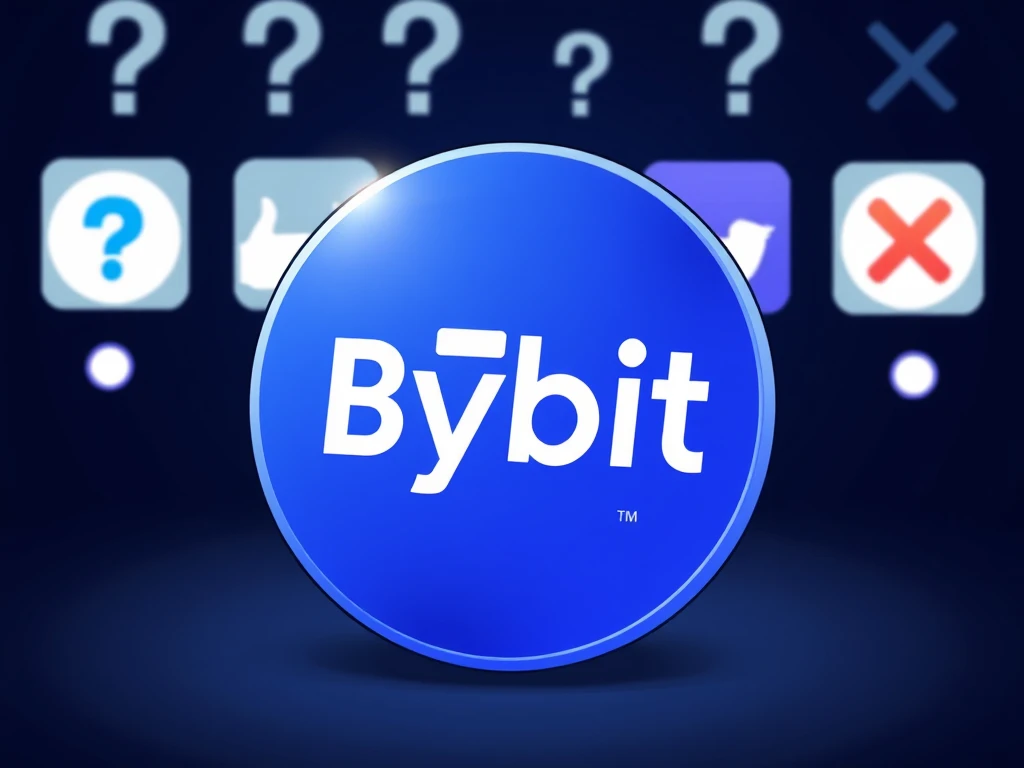Unveiling the Truth: Bybit Denies Shocking $1.4M Listing Fee and School Promo Accusations

Is Bybit, a leading crypto exchange, embroiled in a scandal? Recent accusations circulating on X (formerly Twitter) allege that Bybit demands a staggering $1.4 million as a listing fee and exploits students through its campus ambassador program. These are serious claims that have sent ripples through the crypto community. But is there any truth to these bombshell allegations? Let’s dive into the details and uncover what’s really happening.
Bybit Denies Outrageous $1.4 Million Listing Fee Demands
The core of the controversy stems from a social media post by X user “silverfang88,” who boldly accused Bybit of charging exorbitant fees for token listings. This user claimed that projects had to cough up $1.4 million just to get their tokens listed on the popular crypto exchange. Such a hefty listing fee, if true, would be a significant barrier for many promising crypto projects, especially smaller and emerging ones. The accusation immediately sparked debate and concern within the crypto sphere.
However, Bybit has vehemently denied these claims. In a statement provided to Crypto News Insights, a Bybit representative clarified their listing process, stating that the exchange does not impose a $1.4 million listing fee. Instead, Bybit explained that it requires projects to allocate a promotional budget and a security deposit. This deposit, ranging from $200,000 to $300,000 in stablecoins, serves as a guarantee that projects will actively engage in promotional activities to boost user engagement post-listing. According to Bybit, this deposit is not a fee but a security measure to ensure projects are committed to their platform and user base.
What’s the Real Cost of Listing on Bybit Crypto Exchange?
To understand the actual costs associated with listing on the Bybit crypto exchange, let’s break down the components Bybit outlined:
- Promotional Budget: Projects are expected to allocate funds for marketing and promotional activities to attract users and increase trading volume after listing. This is a common practice in the crypto space, as exchanges want to ensure listed tokens gain traction and are actively traded.
- Security Deposit: Bybit requires a $200,000–$300,000 stablecoin deposit. This is not a listing fee in the traditional sense but rather a refundable deposit contingent on meeting pre-agreed promotional targets. If projects fail to meet these targets, penalties may be applied, potentially drawing from this deposit.
- Evaluation Process: Beyond financial aspects, Bybit emphasizes a rigorous evaluation process. This includes:
- Form Submissions
- Internal Voting
- In-depth Research
- Listing Review Meeting
This multi-faceted evaluation focuses on crucial factors like on-chain data, address authenticity, project use cases, user distribution, token valuation, and the team’s credentials. Bybit stresses that this comprehensive evaluation is essential to ensure the quality and security of projects listed on their platform, protecting their users from potentially risky or fraudulent tokens.
Campus Ambassador Program Under Scrutiny: Are Student Accusations Valid?
Adding another layer to the controversy, the same X user also leveled accusations against Bybit’s campus ambassador program. The user alleged that Bybit provided trial contracts to students participating in the 2024 program and then employed Key Opinion Leaders (KOLs) to silence any student complaints or negative feedback regarding the program. These are serious allegations that raise concerns about the ethical treatment of students involved in Bybit’s initiatives.
Bybit CEO Ben Zhou directly addressed these accusations, calling for evidence to support the claims. He emphasized the detrimental impact of spreading rumors without factual backing, particularly in the volatile crypto market. Zhou urged the accuser to provide concrete proof of any wrongdoing by Bybit in relation to the campus ambassador program or any other matter. As of now, Bybit has not issued a specific public statement addressing the campus ambassador program accusations beyond Zhou’s response on X.
Seeking Evidence and Transparency in Crypto Accusations
The unfolding situation highlights the critical need for evidence-based discussions and transparency within the cryptocurrency space. While social media platforms like X can be powerful tools for raising awareness and sparking conversations, they can also become breeding grounds for misinformation and unsubstantiated claims.
In this instance, the accusations against Bybit, concerning both the exorbitant listing fee and the campus ambassador program, are serious and warrant careful examination. However, it’s crucial to differentiate between allegations and verified facts. The crypto community benefits from healthy skepticism and critical analysis, but it’s equally important to demand evidence and allow platforms like Bybit the opportunity to respond and clarify their position.
Moving Forward: What’s Next for Bybit and the Crypto Community?
The ball is now in the court of both the accuser and Bybit. The X user who made the initial accusations has been challenged to provide evidence to support their claims. The crypto community, in turn, should exercise caution and avoid jumping to conclusions based solely on unverified social media posts.
For Bybit, while they have denied the $1.4 million listing fee and addressed the campus ambassador program accusations by requesting evidence, further transparency might be beneficial. Providing more detailed public information about their listing process and the structure of their campus ambassador program could help dispel rumors and build trust within the community.
Ultimately, this situation serves as a potent reminder of the importance of due diligence, responsible reporting, and open communication in the fast-paced and often turbulent world of cryptocurrency. As the crypto space matures, fostering a culture of transparency and evidence-based dialogue is essential for its continued growth and credibility.







